This week, KIBLA2LAB will host Armina Pilav, PhD, an architect, artist, and lecturer at the University of Sheffield Damir Ugljen, an independent researcher, artist, and archaeologist as part of the RUK residency program. Armina and Damir, who operate in the scope of the transmedia research practice Un-war Space Lab, are coming to Maribor on Thursday, 14 April 2022. Their residency will focus on researching the Drava River, and the implications of exploiting this body of water through relational ecologies and augmented reality technologies in collaboration with local inhabitants and experts.
Drava Reflections is a shared process looking at the exploitation of the Drava River for electricity production or other uses, and its consequences on the Drava water body through its relational ecologies. The theoretical basis for the project is the work of Astrida Neimanis, a hydrofeminist, and her thinking about »wet matter« and the creation of radical water body relationships that include human and non-human species or interspecies as well as their activities on the Drava waters. The intermedia tools such as the Internet, audio and video recordings, polaroid cameras, hand drawings, written texts, found objects, as well as site-specific research on existing flora and fauna, will be used to reflect on multiple anthropogenic influences. Drava Reflections is an interactive and shared process that includes disciplinary knowledge from biologists, botanists, and other scientists as well as everyday knowledge of people living with the Drava River and the city of Maribor in Slovenia.
Drava Reflections are part of the wider program Toxic Lands. It is a research-based, experimental curatorial intervention and a collaborative creation encompassing landscape architecture, film, art installations, performances, scientific research, and activist initiatives. It started to develop in the destroyed and polluted environment of the Neretva River flowing through the Mostar city in Bosnia and Herzegovina. The working methods encompass both the physical and digital space and reveal the hidden effects of the Anthropocene, military activities, climate change, capitalist colonial practices, and extractive industries.
»The Drava River is one of the most exploited rivers in the world in terms of hydropower, with almost 100% of its water potential energy being exploited. As the region of the river is a place of exceptional biodiversity, this raises several ecological concerns, together with other forms of exploitation such as the use of river deposits.« (https://en.wikipedia.org/wiki/Drava)
During the residency, Armina and Damir will hold two public events to engage with local community. On Tuesday, 19 April 2022, at 5:30 p.m., you are cordially invited to MMC KIBLA to participate in the second session of the reading group A Repair Manual for Spaceship Earth, where we will focus on the text Smart Forests by Jennifer Gabrys. On Thursday, 21 April 2022, we invite you to an artist talk, which will take place at MMC KIBLA at 7 p.m.
Un-war Space Lab is a cross-media research-based practice on material transformations of rivers, land, architecture, and the interspecies society during and after the war; it is led by Armina Pilav, feminist, architect, and researcher in ecologies of war destruction. It works as a fluid collective of researchers and practitioners across the disciplines of landscape architecture, film, archaeology, visual arts, and environmental humanities, to mention a few. Plurennial research on the Neretva River and its inter-species ecologies is developed in collaboration with Damir Ugljen – an archaeologist and independent researcher who explores the cultural significance and ecological consequences of the material transformation of landscapes, with a particular focus on adaptive responses of non-human and human subjects to newly formed conditions.
Armina Pilav is a feminist, architect, and lecturer at the Department of Landscape Architecture, University of Sheffield. Her research, practice, and teaching intersect and focus on the politics of re-presentation and re-production of physical, mediated space, bodily experiences in extreme conditions of war destruction, or other disaster conditions. Armina uses cross-media tools, psychospatiality, and radical observations to expose ecologies of transformations of rivers, lands, and related natural forms, architectures, and society. She publishes in magazines, academic journals, and exhibits regularly. The research on the destruction of Sarajevo, Mostar, and the inhabitants' transformation of violence has been exhibited at the Venice Biennale of Architecture (2018, 2016), at the Architecture of Shame in Matera (2019), and as an autonomous archive represented with the Un-war Space device (2018–2022). She is developing a research and curatorial program Toxic Lands on human destruction of lands, rivers, and other, non-human species. Armina is the founder of Un-War Space Lab, a member of the Association for Culture and Art Crvena in Sarajevo. She is currently based on Brač Island where she is learning about wild plants, their growing media, and their use in everyday life as a cure and as food.
Damir Ugljen is an archaeologist and independent researcher interested in the fields of archaeology, social anthropology, and environmental inquiry. He explores the cultural significance and ecological consequences of the material transformation of landscapes, with a particular focus on adaptive responses of non-human and human subjects to newly formed conditions. His research methods stem from the understanding of embodiment processes as a working method and extend to experimental and critical practices. Currently, Damir is engaged in different research projects related to post-war landscapes. He is a member of Un-war Space Lab and one of the founders of Alternative Library in Mostar.
www.toxiclands.eu
https://futurearchitectureplatform.org/projects/9c1c4883-c1ce-4ef1-93ed-62bf0aa572ff/?fbclid=IwAR0wJjmtBgxkNbqxQpAqG26C2mjR-qqk5TuWNUzpWGWVJrG3NNXcNPbb3C0
Instagram: @toxic_lands
Residencies
RUK x KIBLA2LAB International Residency Program: Armina Pilav and Damir Ugljen (Un-war Space Lab)
14.04.2022 09:00
Date: 14.04.2022 - 24.04.2022
Location: KIBLA2LAB



